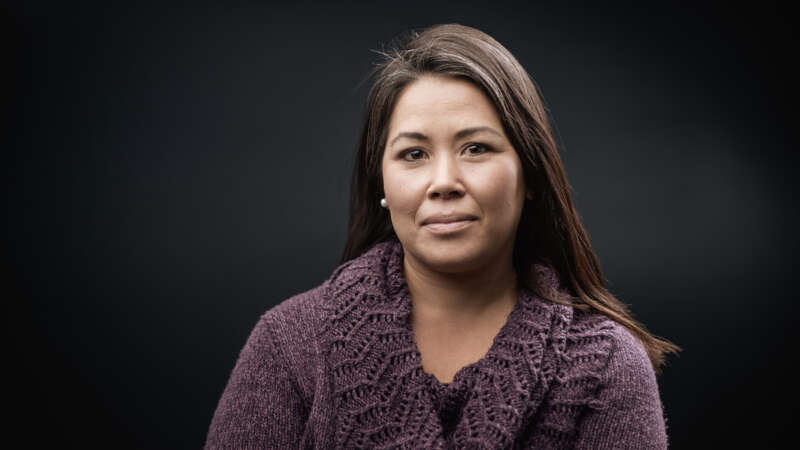Bandana project gives people the confidence to help.
Green bandanas tied to students’ backpacks are becoming a more common sight on the Kansas State University campus. No, K-State hasn’t added green to its school colors. The green signifies mental health awareness, and the bandanas signify something special.
The Bandana Project arrived at K-State in March 2021 as a suicide awareness and prevention campaign from the Thrive Navigators. The campaign served as Thrive Navigators’ introduction to campus, a student organization that started in January of 2021 to spread awareness about mental health and reduce the stigma of seeking help.
The demand for mental health services at K-State has increased by 27% since 2019, mirroring national trends. One in four college students nationwide have had serious thoughts of suicide.* These trends inspired the focus of 2022’s All in for K-State day of giving, which focused on increasing access to K-State mental health services, including programs like the Bandana Project.
With a 45-minute training, students are given the tools to detect signs that someone may be thinking about suicide and how to begin the conversations that could lead them to seek help. The Bandana Project is unique in its ability to give advocates step-by-step tips on how to talk about mental health with people they encounter daily — peers, coworkers and family members.
At the end of the training, participants are given a physical green bandana to tie to their book bags or purses as a symbol of their mental health advocacy. These bandanas create a culture of support for those who may not know where to look for mental health resources.
Chris Bowman, director of the Morrison Family Center for Student Well-being, says that there has never been a lack of mental health advocates wanting to help, but there is often a hesitation in knowing when to step in. “The bandana training gives people guidance on what their roles are. We reassure them and give them confidence that they are making the situation better as opposed to making it worse. The other part is that we give them resources they can share with their peers, with their friends and with their family members.”
Since the first Bandana Project training in March 2021, more than 1,100 students have learned how to recognize signs someone might be struggling and how to offer help. Green bandanas can be found on the backpacks of class facilitators, faculty, fraternity and sorority members and many others throughout campus.
“With this training, students are able to get some tips and tools on how to help their fellow K-State community,” Chris said. “As K-Staters, we pride ourselves in taking care of our students and our community. We have to get to the point where asking for help with mental health is seen in the same light.”
*From Trends in College Student Mental Health, 2020-2021, JED Campus



